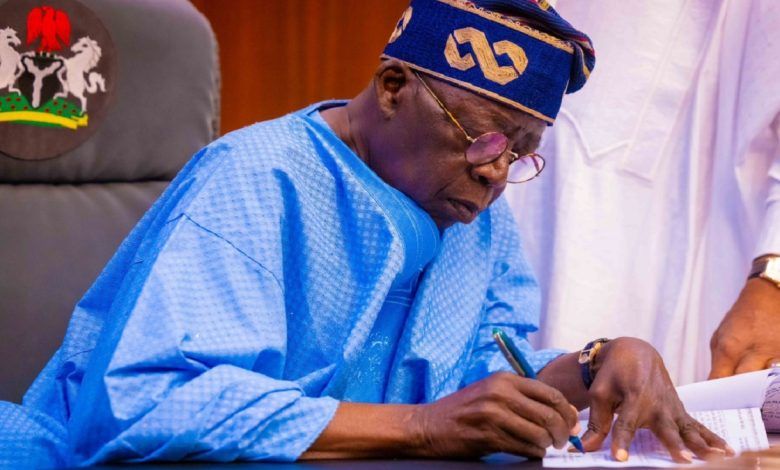
President Bola Tinubu has approved the appointment of a new management team for the Bank of Industry Limited (BOIL). The announcement was made through a statement issued by Chief Ajuri Ngelale, the Presidential spokesman.
The new board of BOIL will be led by Dr. Mansur Muhtar as the Chairman, with Dr. Olasupo Olusi taking on the role of Managing Director/Chief Executive Officer. The 13-member board also includes Mrs. Ifeoma Uz’Okpala as Executive Director of Large Enterprises, Mr. Shekarau Omar as Executive Director of Micro, Small, and Medium Enterprises, Mr. Usen Effiong as Executive Director of Corporate Services, Ms. Mabel Ndagi as Executive Director of Public Sector & Intervention Programmes, and Mr. Rotimi Akinde as Executive Director of Corporate Finance & Risk Management.
Additional board members include Mallam Tajudeen Datti Ahmed, Non-Executive Director representing the Ministry of Finance Incorporated; Mr. Adedamola Olufemi Young, Non-Executive Director representing the Central Bank of Nigeria; Reverend Isaac Adefemi Agoye, Non-Executive Director representing the Manufacturers Association of Nigeria; Mallam Muhammad Bala, Non-Executive Director representing the Federal Ministry of Industry, Trade & Investment; Mr. Oreoluwa Adeyemi, Independent Non-Executive Director; and Mr. Sulaiman Musa Kadira, Independent Non-Executive Director.
Dr. Mansur Muhtar, the newly appointed Chairman, brings decades of experience in finance, international development, public service, and academia. He has previously served as the Minister of Finance, Budget, and Economic Development from 2008 to 2010 and was the Vice-President of Operations at the Islamic Development Bank before his recent appointment.
The President has expressed his expectations that the new board will work diligently and with a strong commitment to the nation, driving BOIL’s mandate to support projects that promote job creation, poverty alleviation, and the improvement of socio-economic conditions for Nigerian families.





